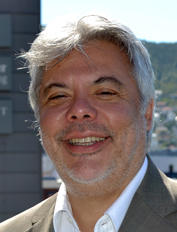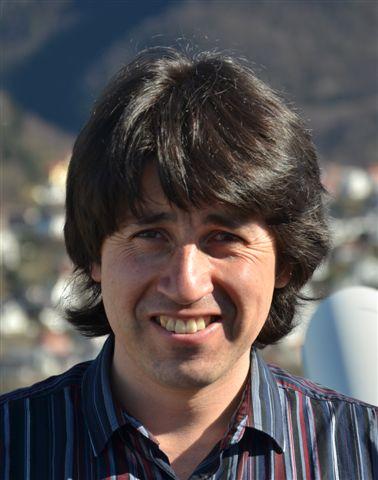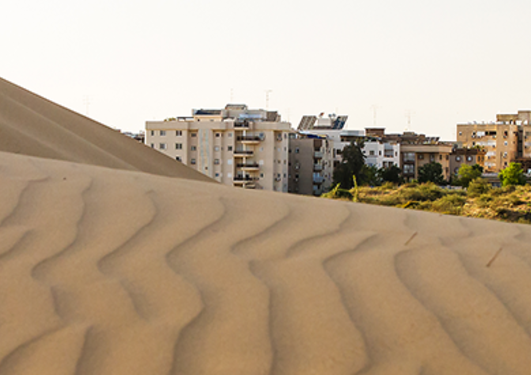Agenda 2030: Poverty, Climate Change and Sustainability

Main content
Course leaders: Alberto Cimadamore, Scientific Director, Comparative Research Programme on Poverty (CROP), UiB, and Noel Keenlyside Professor, Bjerknes Center / Geophysical Institute, UiB
Lecturers: Vivi Stavrou, Senior Executive Manager, ISSC; Oliver Mtapuri, Associate Professor in Development Studies, UKZN; William Clark, Professor of International Science, Public Policy and Human Development at Harvard University’s John F. Kennedy School of Government.
Eradicating poverty in all its forms and dimensions has been defined by the United Nations as “the greatest global challenge and an indispensable requirement for sustainable development” in their “Agenda 2030”. In the same document, climate change was defined as the other of the great challenges of our time due to its actual and predicted effects on present and future generations and its unprecedented and disproportioned impacts on the poorest and most vulnerable in the world.
The main objective of this course is to analyse these challenges within an integrated scientific framework and to provide students with tools to address these and other major global challenges. Transdisciplinary research (TDR) and more specifically, Sustainability Science, offer the possibility to address urgent societal problems focusing on the transition to sustainability and the quest for integrated research and teaching.
The course will start by presenting Sustainability Science as an emerging field that spans academic disciplines and brings together scholarship and practice with global and local perspectives from the North and South.
The programme will include research and educational modules that will explore the theoretical and empirical links of some of the biggest challenges of our time; poverty, climate change, and sustainable development. These modules will be co-ordinated and taught by specialists in each field. A final module will contribute to the integration of knowledge and collective evaluation of the ideas and research proposals developed during the course.
Please refer to the BSRS programme for common BSRS sessions
Course programme
Module 1: Sustainability Science and Transdisciplinary Research (TDR)
This module will look at sustainability from a TDR point of view and address the following question: How can TDR provide a tool kit to address sustainable development and the greatest challenges of our time with a focus on the dynamic interactions between nature and society?
The module will focus on the co-production of knowledge and problem-driven science as instruments to address these challenges and feed the decision-making process.
Lectures
Introduction to the course and sustainability science (Alberto Cimadamore)
Sustainability, science and development: focusing on the greatest global challenges of the 21st Century (Alberto Cimadamore)
Trans-disciplinary research (TDR): history & epistemology. Integrating scientific approaches & research design (Vivi Stavrou)
Ethical & methodological issues in TDR (Vivi Stavrou)
Sustainability Science as a special case of TDR. Why are they so appropriate for research on the SDGs? The way forward. (Alberto Cimadamore & Vivi Stavrou)
Module 2: Poverty eradication in the MDG/SDG era
This module will take a closer look at how the MDGs and SDGs processes addressed poverty. It will critically evaluate the challenges posed by poverty and sustainable development at the beginning of the 21st Century, before looking forward to the prospects ahead. Particular attention will be paid to global poverty in an age of insecurity and inequality, identifying systemic problems and biases as obstacles to eradicating poverty and diminishing inequality. The module will also consider local effects of global changes and policies, as well as the issue of food security.
Lectures
Poverty and Inequality. Concepts and definitions. Capabilities and Human Development, Social Exclusion and Human Rights, Vulnerability and Resilience. New directions. (Oliver Mtapuri)
Poverty and Inequality. Measurement and critical analysis. (Oliver Mtapuri)
MDGs & SDGs: Processes and Outcomes. (Oliver Mtapuri)
Global poverty. The case of Africa (with special emphasis in Southern Africa). (Oliver Mtapuri)
Poverty research in the 21st Century. The science-policy nexus. Needs, issues and approaches. (Alberto Cimadamore)
Global poverty: international discourses and realities. A critical approach. (Alberto Cimadamore)
Sustainability and poverty eradication. What’s new in the 21st Century? (Alberto Cimadamore)
SDGs and integrated research. Sustainability as a dependent variable: how does this impact in the field of poverty and development research? (Alberto Cimadamore)
Sustainability Science and TDR: how do they transform the field of poverty research? Research design & development oriented to bridge science & policy. (Alberto Cimadamore)
Alberto Cimadamore & Oliver Mtapuri discuss research ideas & design with the students based on papers (max. 200 words) presented by selected students.
Module 3: Climate change, Climate Services, and Food Security
This module aims to provide a basic understanding of climate change and its impact at global and regional level. It will introduce so-called Climate Services, which are being developed in order to provide actionable climate information to society. Climate Services are broadly defined as “the transformation of climate-related data — together with other relevant information — into customised products that may be of use for the society at large. TDR and Sustainability Science are key components to the successful development of Climate Services, which in turn is essential to ensure food security globally.
Lectures
Introduction to the mechanisms for climate variability and change, global and regional. (Noel Keenlyside)
Rain, water and drought (Ellen Viste)
Food security under climate change (Tore Furevik)
Modelling and predicting climate (Noel Keenlyside)
Climate Services (Stefan Sobolowski)
Discussion on challenges in realising reliable climate prediction and useful climate services (Noel Keenlyside and Stefan Sobolowski)
Module 4: Integrating analysis & perspectives
This module will aim to integrate the knowledge contained in previous sessions.
Collective discussion and evaluation of one-page research proposals prepared by the students using the ideas and readings discussed during the course will used to encourage interaction and catalyse reactions.
Sessions
Integrating climate, poverty and development research. A concrete experience in the area of climate services: CS4AWA. Lessons & possibilities in future integrated research using Sustainability Science & TDR approaches
Students’ presentations of research ideas & design. General discussion coordinated by lecturers
General conclusions. Wrapping-up and plan for the future (i.e., exams & evaluation of final papers)
Special lecture: William Clark: Crafting usable knowledge for sustainable development. The presentation (pdf)
https://sites.stanford.edu/pursuing-sustainability/
Course literature
Required reading before arrival in Bergen (total 125pp)
Sustainability Science and Transdisciplinary Research
Bettencourt, L.M.A. and J. Kaur (2011) ‘The Structure and Evolution of Sustainability Science’, Santa Fe Institute Working Paper 2011-02-004. 6pp
Clark, W.C. and N. M. Dickson (2003) ‘Sustainability Science: The emerging research program’ in PNAS, Vol. 100, No. 14, p. 8059–8061. 3pp
Hirsch Hadorn, G. et al., (2008) ‘The Emergence of Transdisciplinarity as a Form of Research’ in Hirsch Hadorn, G. et al. (eds) Handbook of Transdisciplinary Research. New York: Springer. 21pp
Pohl, C. and G. Hirsch Hadorn (2008) ‘Core Terms in Transdisciplinary Research’ in Hirsch Hadorn, G. et.al. (eds) Handbook of Transdisciplinary Research. New York: Springer. 6pp
Wiesmann, U. et al. (2008) ‘Enhancing Transdisciplinary Research: A Synthesis in Fifteen Propositions’ in Hirsch Hadorn, G. et al. (eds) Handbook of Transdisciplinary Research. New York: Springer. 9pp
SDGs /Poverty / Climate change
United Nations (2016) The Sustainable Development Goals Report.
http://unstats.un.org/sdgs/report/2016/The%20Sustainable%20Development%20Goals%20Report%202016.pdf Pages 12-15; 36-37; 50-51 = 8pp
United Nations General Assembly (2015) ‘Transforming our world: the 2030 Agenda for Sustainable Development’, Res. A/70/L.1, 25 September. 35pp
http://www.un.org/ga/search/view_doc.asp?symbol=A/RES/70/1&Lang=E
IPCC (2013) ‘Summary for Policymakers’ in Climate Change 2013: The Physical Science Basis. Contribution of Working Group I to the Fifth Assessment Report of the Intergovernmental Panel on Climate Change [Stocker, T.F., Qin, D., Plattner G.-K., Tignor, M., Allen, S.K., Boschung, J., Nauels, A., Xia, Y., Bex V. and P.M. Midgley (eds)]. Cambridge University Press, Cambridge, United Kingdom and New York, NY, USA. Sections A, B (excluding B.3, & B.5), C, D, E (excluding E.3, E.5, E.7) 20pp
Vaughan, C. and Dessai, S. (2014), Climate services for society: origins, institutional arrangements, and design elements for an evaluation framework. WIREs Clim Change, 5: 587–603. doi:10.1002/wcc.290 17pp


